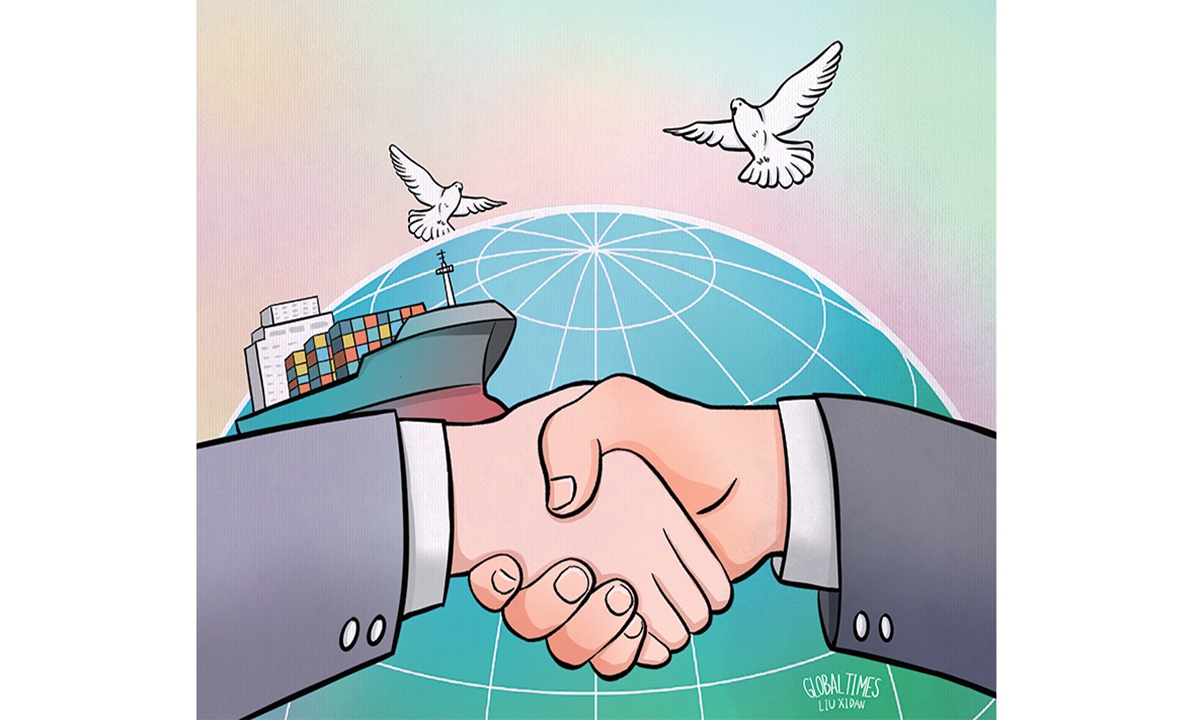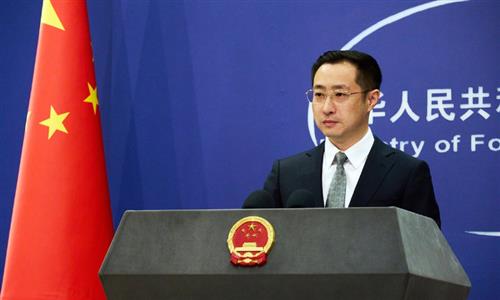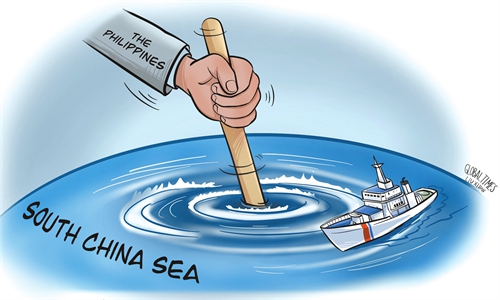
Illustration: Liu Xidan/GT
In recent years, China's active diplomacy has garnered widespread attention. Many countries and the United Nations have positively acknowledged China's constructive role in mediating international disputes and promoting regional peace. China has demonstrated an exceptional proactive stance, embodying a new diplomatic trend known as "playing a constructive role."Playing a constructive role sends a significant signal that China is comprehensively advancing its national rejuvenation and the construction of a strong country through Chinese modernization. China will continue to champion the Five Principles of Peaceful Coexistence, work with all countries to build a community with a shared future for mankind, and make new and greater contributions to safeguarding world peace and promoting common development.
Some international observers have speculated that playing a constructive role means abandoning China's long-held principle of non-interference in the internal affairs of other countries. However, to the contrary, playing a constructive role is not a fundamental change in direction but a variation in the frequency and intensity of actively participating in resolving international differences and disputes.
Playing a constructive role is also about, while vigorously safeguarding its own interests, trying to let China's diplomatic stance and philosophy be acknowledged and welcomed by more and more countries under the framework of common international practice. For example, we should pursue greater international influence by moderately increasing foreign aids and funds for international organizations. Furthermore, more efforts should be made to promote global recognition for the Global Development Initiative, Global Security Initiative and Global Civilization Initiative, as well as to tell China stories to listeners worldwide. Meanwhile, it's also crucial for diplomats to uphold Chinese tradition and culture, to build an international image of kindness, sincerity and benevolence for China.
Playing a constructive role prioritizes negotiations and understanding, aiming to resolve disputes through dialogue and communication to the greatest extent possible. Simultaneously, military, commercial and cultural soft power are all deployed to serve diplomatic needs, striving to avoid the outbreak of war. Despite historical issues and current interests causing friction in surrounding regions, China's restraint and skillful diplomacy have played a crucial role in preventing major conflicts in East Asia over the past four decades. As a result, the region remains a significant economic bloc globally.
China's diplomacy in playing a constructive role seeks new possibilities in seemingly impossible situations and strives to achieve the greatest common ground. This approach requires proactive diplomacy to enhance public confidence in resolving or alleviating international tensions through peaceful means, contributing to global stability. Creativity is evidently central to playing a constructive role, and innovation is essential to advancing new diplomatic processes.
It is important to note that China's diplomacy in playing a constructive role still faces numerous challenges that require diligent efforts to address and overcome.
First, against the backdrop of intensifying strategic competition among major powers, how to maintain a posture of openness and collaborative progress - working closely with the broader developing world and the international community while also maintaining connections with Western developed countries in cutting-edge technological areas - presents a completely new challenge that we have never faced before.
Second, in the face of sensitive frictions with neighboring regions caused by historical issues or conflicts of interest, external major powers have interfered through hard power, resulting in setbacks to the existing consensus and constructive efforts. These challenges require innovative thinking and methods to overcome.
Third, with technological advances and the evolution of various aspects, new frontiers in diplomacy are emerging, such as frontier diplomacy, internet diplomacy and multi-track diplomacy. These approaches have not replaced traditional diplomacy but have added more facets and expanded the functionality of existing international systems. By embracing and integrating the strengths of others, Chinese diplomacy can better demonstrate its unique characteristics and contribute to building a diverse yet harmonious global community of shared future.
The author is a professor at Peking University and the director of the Institute of Area Studies at Nanjing University. He is the author of "Creative Involvement: New Direction of China Diplomacy." opinion@globaltimes.com.cn


